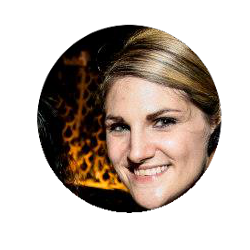Retirement Planning; Life After Gymnastics
Wednesday, May 23, 2012
Mention the word retirement to non-gym people an they wouldn’t instinctively think of a teenager or preteen moving on from their gymnastics career but rather someone in the 60's moving to a subtropical climate to live off their pension. Retirement is not only a major life-changing event for those leaving the workforce but also for a teenager. Infant, considering their delicate emotional state, this IS the biggest event of their life to dateso far.
Gymnasts are accustomed to goal setting, working hard towards that goal and eventually manifesting that goal. There is definite certainty of this sport where it would be easy to feel lost without a purpose when leaving the gym. Retirement gives an opportunity for psychological growth when the gymnast’s exclusive identity as the gymnast explores their identity of who they are outside of the gym.
In addition, the planning process is the beginning of asserting personal control and achieving independence. Coaches have always told or showed them what to do and how to do it. This “freedom” can end up being a struggle to adjust to the new independence brought by retirement. Finding new hobbies, extra-curricular activities and other past-times can come into play. Before they have always had to sit on the backburner. Take this time to research all opportunities. Talk to people who do them or better yet sign-up for a trial class.
Furthermore, this time is another opportunity to find connections with friends inside and most importantly, outside of the gym. As a woman comes to identify herself with the relationships she has with others. Find connections to those outside the sport and form new friendships.
As most gymnasts retire during adolescence, it is inevitable physical changes will be associated with the ending of training. Plan to keep the body active, try other sports or dance. While the pressure to be in the best shape for competition may be relieved, a healthy active lifestyle should not be neglected. It’s quite easy to gain 10-15 lbs in a month with no gym, believe me; I’ve been there!
To sum it up:
- Finish the season
- Find a hobby
- Make new friends
- Plan a way to stay active.
What to do when they want to quit?
Friday, May 18, 2012
She will be moving up this season and has been training for
it for the past few months, it seems out of the blue one night before bed she
says, “I want to quit.” Lots of tears and a reassuring hug follow. As she
finally drifts off into sleep, you find yourself wondering if there is anyone
else going through the same thing. Good news is, YES! At one point, this comes
up in a young gymnasts’ career and many have gone through the same thing.
Most parents are not interested in how to help their
daughters to stay in gymnastics but would rather know about how
they can help their daughter, regardless of what she will choose to do.
While there may not be a step-by-step manual for such an occasion, I have a few
points for parents (and gymnasts) pondering hanging up their grips.
Are you really surprised? When kids want to quit anything it doesn’t come out of
nowhere, they have been stirring that idea up for some time. She has had the
time but unfortunately to you it seems quite abrupt. Don’t tell her what to do or assume anything. Take a breathe, reflect. I’m sure there has been a fear of what you would say, which
prevented her from saying her thoughts in the first place. The most important
thing for her right now is making sure that you are there to help her work
through this huge decision. Ask questions so you
can help be her guide.
Get to the root of her sadness. Is she at
a vulnerable age, going through puberty? A Pre-teen female gymnast might face
challenges that include increased vulnerability to repetitive stress injuries
during the growth spurt, the social and physical ramifications of practice
hours, and the quite reasonable fears associated with the increasing
complexity, difficulty, and objective danger of skills as girls advance.
Involve the Coach. Coaches play a
very critical role in this process; many may be unaware or unwilling to play
the part (Let’s hope he/she is not one unwilling!) Communication with the coach
needs to be there. It’s imperative for them to know their athletes needs
physically and emotionally.
Encourage Retirement: Throw out that negative word,
“quit” in all of your conversations. She should not forget all of her hard
work, accomplishments nor should she feel like she is just throwing it away if
she does decide to end her career. A retirement helps to take pressure off of the decision and also
requires planning which is something positive to look forward to.
Happy Mother's Day: A Tribute to Mommy & Me
Saturday, May 12, 2012
Once upon a time an overactive 2 year old was taken to a Mommy & Me class at her local club. She instantly fell in love with the sport, dedicated her life to it without realizing she had dedicated her mothers life to it too. From those early movement classes to the very last competition of her career, it was always Mommy & Me.
- Mommy was the chauffeur to and from gym, even when she could have done something nice for herself.
- Mommy cleaned the gym every week at 4 am in exchange for the many hours of training.
- Mommy was the ambulance when things went wrong on a tumbling pass.
- Mommy was screamed at because, "she just didn't understand."
- Mommy was the cheeleader when there wasn't so much cheer.
- Mommy was the stylist making sure she had sewn the right leotard pattern.
- Mommy was the gym's interior decorator bringing life and color to the meets.
- Mommy said, "it's OK," when it was time to hang up the grips with dignity.
28 years later that little girl becomes a mommy hoping one day to have a class: Grandma, Mommy & Me.
Gymnastics has given me this unequivocal bond with my mother that I've never heard of with any other sport. Happy Mother's Day!
Gymnasts, ex-gymnasts: Please share your stories of how your mother influenced your gymnastics.
Coach Casie's Top 5 Reasons to Enroll Your Child In a Parent & Tot Gymnastics Class
Tuesday, May 8, 2012
Mother's Day is just around the corner and I've thought what way could I give to the mothers out there? Hmmmm. How about my top 5 reasons for enrolling you and your child in a Parent & Tot gymnastics class?
5.) Fitness: A good class gets both parent and child moving. A family that sweats together, stays together!
3.) Reading Readiness: The components of reading readiness are quite similar to the components of motor skill development. A good Parent & Tot program develops reading readiness, gross motor and fine motor skills. Below are some of the examples:
- Visual differentiation - seeing and feeling different surfaces, equipment and props; knowing how they are used.
- laterality - moving sideways, log rolls
- Gross motor skills - skipping, running, leaping
- Hand-eye coordination - passing balls back & forth
- Distance, size & shapes - going through tunnels & specialized mats
- Attention spans - staying at a station to finish a task, doing repetitions of a single skill
- Tracking - following bubbles in the air,
- Fine-motor skills - popping bubbles with the pointer & thumb
- Sensory discrimination - jumping up high enough to land on top of a mat
- Awareness, perception & memory - listening to the teacher
- Expressive language - explaining to others what they did in class
- Auditory - listening to songs & the instructor
- Imitating - watching instructor to see if they can repeat it
- Directionality - learning left & right w/games, songs and skills
2.) The Bond: There is a special bond that you create with your child when involved in an early movement class. You will be physically helping them maneuver their bodies, you will be their cheerleader encouraging & the hug when they do achieve their goals all in one class!
1.) It's FUN!
As I'm about to celebrate my first Mother's day being a Mommy, I realize how much I love being with my little one. She grows up so fast, just like any other kid. It makes me think that these little ones will have their whole school career to be alone with a teacher, let's soak this time up before it's too late!
Fun With Scarves
Saturday, May 5, 2012
One of my favorite pre-school props had found its way to the last 5 minutes of a school aged recreation class.
Fashionista Erika
Coach Irene's colorful back handsprings
Seat drop war. We don't care who wins!
I've learned that these older kids need more fun in their lessons & I'm going to be using much more props with my older kids from now on.
What are some of your favorite props to use for the older recreational classes?
The Effectiveness of Using Educational Gymnastics skills on Motor Capabilities and Social Behaviour among Kindergarten children
Thursday, May 3, 2012
Recently, I've read a study conducted by Aida Al-Awamleh called "The Effectiveness of Using Educational Gymnastics skills on Motor Capabilities and Social Behaviour among Kindergarten children" for Konstanz University, published in 2010.
It comes as no surprise to me that "Results indicated that motor capabilities, balance, agility, strength endurance; flexibility, explosive power, and muscular endurance improved significantly in the experimental group.Differences were also found between experimental and control groups with regard to social skills and problem behavior according to parents and teachers reports. Gender differences were noted in connection with motor capabilities, social skills and problem behavior. Significant relationships were found between motor capabilities and social behavior. Left-handed children had better reaction times than right handed."
What I found most unique about this study was it seems there was no coach in this study. The researcher designed a program that would was age appropriate with the purpose of improving basic gymnastics skills, loco-motor skills and social skills. The program was recorded on 31 DVDs of other gymnasts (aged 4-10). Each lesson was split into 3 sections: warm-up, the workout, and cool-down. It was an audio-visual program where, they watched and did with their regular school teacher.
If these children are simply imitating a screen, imagine how much more of a significant impact on the differences between the control group and the experimental group were to be if I were coaching them? I would like to see future prospects of a study like this conducted with great coaches!
I love seeing these types of studies done to really drive in to my heart that what I'm doing is really making a positive difference in a young child's life.
It comes as no surprise to me that "Results indicated that motor capabilities, balance, agility, strength endurance; flexibility, explosive power, and muscular endurance improved significantly in the experimental group.Differences were also found between experimental and control groups with regard to social skills and problem behavior according to parents and teachers reports. Gender differences were noted in connection with motor capabilities, social skills and problem behavior. Significant relationships were found between motor capabilities and social behavior. Left-handed children had better reaction times than right handed."
What I found most unique about this study was it seems there was no coach in this study. The researcher designed a program that would was age appropriate with the purpose of improving basic gymnastics skills, loco-motor skills and social skills. The program was recorded on 31 DVDs of other gymnasts (aged 4-10). Each lesson was split into 3 sections: warm-up, the workout, and cool-down. It was an audio-visual program where, they watched and did with their regular school teacher.
If these children are simply imitating a screen, imagine how much more of a significant impact on the differences between the control group and the experimental group were to be if I were coaching them? I would like to see future prospects of a study like this conducted with great coaches!
I love seeing these types of studies done to really drive in to my heart that what I'm doing is really making a positive difference in a young child's life.
Subscribe to:
Posts (Atom)










